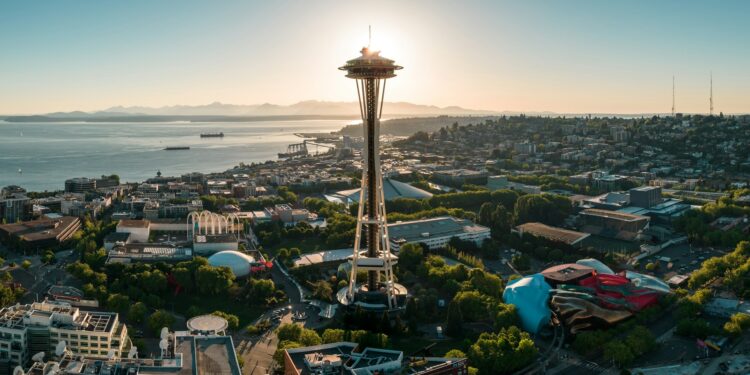Mayor Bruce Harrell unveiled Seattle’s “responsible AI plan” Friday, establishing guidelines for municipal artificial intelligence deployment while positioning the city to capitalize on its status as a national AI hub.
The initiative provides frameworks for AI training programs for city employees and evaluation protocols for implementing AI tools across government operations. Seattle claims national leadership in AI governance, having issued the country’s first generative AI policy in fall 2023.
“Artificial intelligence is more than just a buzzword in Seattle, it’s a powerful tool we are harnessing to build a better city for all,” Harrell stated. The plan emphasizes using AI to improve services, empower employees, and accelerate processes including building permitting.
Chief Technology Officer Rob Lloyd highlighted Seattle’s competitive advantages in AI development. “We have some of the most remarkable AI assets in the country and world right here in Seattle,” Lloyd said, noting the city ranks second nationally behind San Francisco for AI talent concentration.
Seattle’s existing AI policies require “human-in-the-loop” oversight, mandating employee review of generative AI outputs before official use and attribution of AI-assisted work. The city prohibits AI applications in hiring processes and facial recognition due to performance and bias concerns.
The comprehensive approach addresses public trust issues identified in recent reporting. A Cascade PBS investigation found multiple Washington cities lack adequate AI guardrails, raising privacy and accountability concerns.
The city has identified 41 priority projects where AI could enhance government performance and public services. Sixteen pilot partnerships are active, with 25 completed initiatives providing implementation experience.
Key projects include collaboration with startup CivCheck to expedite building permits, partnership with C3.ai and Microsoft analyzing traffic near-miss incidents, and chatbot technology from Gooey.ai providing multilingual customer service support in 50 languages.
Leah Tivoli, director of Innovation and Performance, reports the CivCheck partnership shows promising results. The technology scans permit applications for common errors, potentially reducing processing times by half through early error detection and prevention.
Seattle explicitly rejects workforce displacement approaches favored by some technology executives. “We want to be responsive to where our employees are being overwhelmed, where the community has a lot of demand, and that is ground that we can cover, where AI can help us, but that isn’t displacive,” Lloyd explained.
Regional adoption extends beyond Seattle, with Bellevue piloting Govstream.ai for permit acceleration and seven local governments using Aurelian’s voice technology for 911 non-emergency call management.
The announcement coincided with Seattle’s Community Innovation Hackathon at Pier 70’s AI House, a startup hub receiving partial city funding. The youth-focused event aims to connect students with municipal programs offering mental health and support services.
Additional hackathons will target building permitting (October 9) and customer service reimagining (early November), fostering collaboration between entrepreneurs, engineers, students, and city staff on practical challenges.
City leadership views these initiatives as ecosystem development rather than organic market evolution. “People have to be good partners and intentional and purposeful in making sure that occurs,” Lloyd emphasized regarding AI sector activation.
The strategy reflects Seattle’s broader technology economy positioning, leveraging existing strengths in cloud computing, software development, and research institutions to capture emerging AI opportunities while maintaining public accountability standards.






